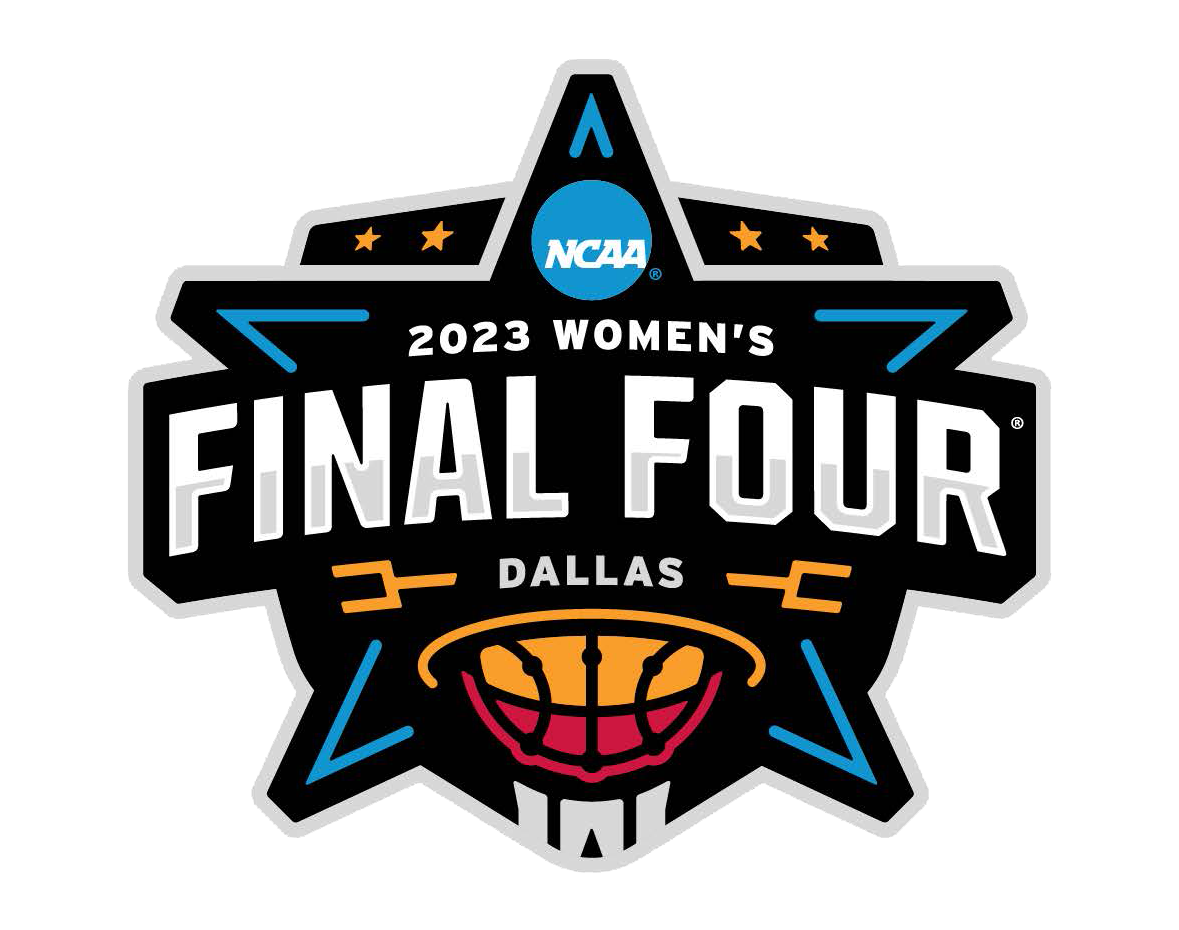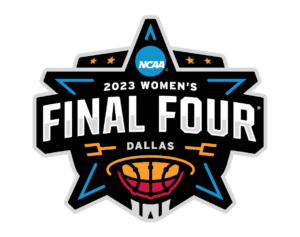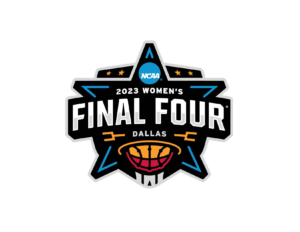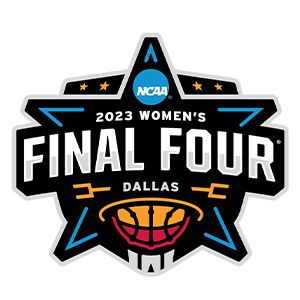When Not To Use a Hyphen It seems like using a hyphen is often the safe choice in writing. Often, arguments for or against a hyphen could be made either way. The use of hyphens is called hyphenation. Using an Ohm Meter to test for bonding of a subpanel. The difference between high-quality and high quality is determined by the location of the noun that the phrase should modify. So "quickly moving stream" would go hyphenless, but "fast-moving stream" would not. Use of the hyphen is far from standardized. "Long term" refers to "a long period of time after the beginning of something" ( source ). 2) To separate two Is, two As, or two other same vowels, such as anti-intellectual, extra-alkaline. The president of the company gave a 10-minute speech to the Board of Directors. built-in drive. That is probably the easiest rule for you to remember, and it also applies to the phrase high-quality. It all comes down to whether a noun follows the phrase well look at more examples of this a bit later. high quarantine risk is to be understood as high (quarantine (risk)); that is, each word applies to the next. How can I control PNP and NPN transistors together from one pin? Examples of Adverbs Ending in -ly Expected hopefully Synonyms of anticipated: Last hyphenations of this language inaugurate cryptorchid angilo jowler boatloads relaunch Spectacles complete chapelward inaugural turf-boring mapping poverty inasmuch presterilizing impetus impressionability coarct Implications Some hyphenated words are found in the dictionary, but others are simply formed by convention. We are working to address intermittent outages. Long-fingered: The hyphen is unnecessary here. You can view The Poynter Institutes most-recent public financial disclosure form 990. No hyphen is needed when such terms are used as modifiers if the meaning is clear and unambiguous without the hyphen. Learn a new word every day. This refers to times when you are writing, and one word does not fit but, rather, bleeds onto the next line of text. Also reffered to as syllable counter and divider. When it comes to hyphens, just try to remember one rule: if your reader would be confused without it, add it. RELATED TRAINING: Sweat this, not that: Real rules vs. grammar myths. 4, Rare and Amusing Insults: Cockalorum, Snollygoster, and More, 'Couple,' 'Few,' and 'Several': The (Mostly) Definitive Guide. Grammarly helps you communicate confidently To correct one misperception: The updates we announced in March did not call for fewer hyphens or no hyphens in compound modifiers, Froke said. Same rules apply to, 'blood soaked.' 11.) Inside the fallout of Twitters decision to strip verified Twitter users of their legacy blue checks. Sona Digital Media LLC is a participant in the Amazon Services LLC Associates Program, an affiliate advertising program designed to provide a means for sites to earn advertising fees by advertising and linking to Amazon.com. should be hyphenated when theyre spelled out. We'll cover these examples later in this article. A quarter-million dollars is still a large amount of money. (Although the latter should avoid the former when in certain areas of China) This is called a compound adjective. Consider a fast-talking Jamaican versus a fast talking Jamaican. These guidelines include changes in 2019, most notably removal of the requirement to hyphenate most compound modifiers after versions of the verb to be. http://www.quickanddirtytips.com/education/grammar/how-to-use-a-hyphen. (which you ask about) fall squarely under the no-hyphen rule, regardless of whether the compound modifier precedes or follows the noun it modifies. Examples include, third grade teacher, chocolate chip cookie, special effects embellishment, climate change report, public land management, real estate transaction. Use a hyphen when two or more words act as a single adjective before a noun. The hyphen tells the reader how "third" works in the sentence. Other two-word terms, particularly those used as nouns, have evolved to be commonly recognized as, in effect, one word. Current Visitors: 218 (0 members, 218 guests). How do I stop the Flickering on Mode 13h? Use a hyphen to join words together to avoid ambiguity. Dont use a hyphen when you are combining an adverb and a participle. The 16th edition says that the table is "a return to the tabular form of earlier editions of this manual" and adds, "consult the preceding paragraphs in this section (7.77-84)--especially if a relevant example cannot be found." The high school students were arrested for breaking and entering. your text, so your work is extra polished wherever you write. In 2017, the stylebook accepted singular they as a non-gendered pronoun. How to Build a Successful Freelance Copywriting Business. Some words with prefixes require a hyphen, while others do not. Should there be a hyphen in expressions such as "currently-available X"? Example: "the currently-available version of X". Over time, many hyphenated compounds become closed compoundsteen-ager became teenager for instance. What does "up to" mean in "is first up to launch"? You can also use manual hyphenation to have Word make hyphenation suggestions. Its recommended you dont take down any load-bearing walls when renovating. If the adverb and adjective follow the noun instead of preceding it, you can also leave off the hyphen. A: Off you go to the sulky corner then. Is there a generic term for these trajectories? The hyphen is a rare exception to a general principle of acceptable domain names. Compound adjective + noun. So, you and your friend are disagreeing about something youve written. Rule Three: To check whether a compound noun is two words, one word, or hyphenated, you will want to look it up in the dictionary. This elevator doesnt go down to Basement 3. Newsrooms need accessible standards about their use of AI to maintain trust with news consumers and ensure accountability of the press. Examples: an off-campus apartment. Just told my copy desk. But hyphenating words when they need to be hyphenated is a habit that will be impossible for journalists of a certain age to stop doing. The hyphen itself gets some attention in Stylebook updates, too. But Sam's brother is hearing impaired. This car runs best on high-octane gasoline. If a hyphen makes the meaning clearer, use it ( small-business owner, high-income workers ). Hyphens are unnecessary in compound modifiers containing an -ly adverb, even when these fall before the noun. Compound modifiers that contain a past participle also follow the same rules as any other compound modifier. Improving the copy in the close modal and post notices - 2023 edition, New blog post from our CEO Prashanth: Community is the future of AI. If a hyphen makes our meanings clearer, we keep it; otherwise, we leave it out as nonessential. And second, no hyphen is needed. Is currently-installed a proper compound adjective? Q: So I have a well-written book. A hyphen should be inserted between load and bearing to make it clear that were talking about walls that are bearing a load. Q: Do numbers need hyphens when theyre adjectives? Write with Grammarly. As of Wednesday, the AP changed some wording that was part of the hyphen entrys introduction for years: Specifically, we are deleting the long-standing guidance that hyphen use is optional in most cases and that the fewer hyphens the better. That wording did not reflect the reality of the rest of the entry, or of our actual practice, Froke said. A good reference work is The Oxford New English Dictionary, which you can easily find on Amazon. A: Yes, and it couldnt be more family-friendly if it tried. However, it is good to note that a hyphen is not interchangeable with a dash. Numbers between twenty-one and ninety-nine should be hyphenated when theyre spelled out. For much of the dictionarys history, a compound word was shown in only one formclosed, hyphenated, or openeven if there were examples of two or, sometimes, all three forms in use. Gary says: June 30, 2013, at 1:55 am All of these style guides emphasize that the nonhyphenation of adverbs as the first element in a compound modifier applies only to adverbs ending in -ly. And thats a good thing because the presence or absence of them is one of the clearest indicators of the quality of writing and editing for a given piece.. (Adverbs modify adjectives, verbs, and other adverbs and often answer the question "How?") Example: compound adjectives that contain an adverb that ends in "ly" The company's highly paid managers are responsible for running largely diverse teams. line-by-line scrolling. This way, the reader knows that both words function like a unit to modify another noun. Exception for -ly Adverbs. A: Yeah thats it. If the word is grammatically impossible to hyphenate the word will be displayed the way you typed it. chocolate-covered raisins. The hyphen (-) is used to join multiple words into a compound. So much fluidity, in fact, that the dictionary cannot always provide a cut-and-dried answer, as much as it tries. Hyphen with compound modifiers: multiple-word adjectives before nouns, Using hyphens to connect words is easy. However, the list is not exhaustive. We can help with your friends issue. Additionally, it is very rare to find proper nouns connected with the word wide. University-wide is the most common in that regard. Youre saying it IS a well-written article? I created this site to share high-quality research-based content on kids, parenting and navigating the school system. Perhaps theres a new type of daisy called the looking flower? A high-interest savings account is one of the best ways to save money. If the number of hyphens in a phrase becomes tedious, try rephrasing. Especially with a .com, .au or another popular extension that suits you best. Your writing, at its best The principle of using a hyphen to avoid confusion explains why no hyphen is required with very and -ly words. Without the hyphenation, "well" would modify "deserved," and the . As a compound adjective "high-quality" means " of very good quality " and is written with a hyphen: Consumers are trading up from stores' own brands to high-quality garments. Open means that there is a space between the two words and no hyphen. No hyphen is needed when such terms are used as modifiers if the meaning is clear and unambiguous without the hyphen. I had a ridiculously small lunch, so I was starving by the time I left work today. It could be read as contradicting your first sentence. Some examples of words that you do not need to write with a hyphen include email (e-mail), living room (living-room), bus driver (bus-driver), or nowadays (now-a-days). Q&A: Why is it called an "Indian summer"? The main goal of hyphenating a term is to prevent confusion on the part of the reader. A hyphen (-) is a punctuation mark that's used to join words or parts of words. Among the correspondence we receive at Merriam-Webster, a significant amount of it comes from people asking how to style a particular compound word. When in doubt, just remember that a dictionary is your best bet for double-checking. So youd saythe 37-year-old mime artist draw a 50-foot house and a five-foot box in the air. But youcould also say the mime artist was 37 years old, and had made his fortune on houses that were 50 feet tall and boxes five feet wide. For numbers by themselves, when writing out as words, hyphenate all from twenty-one to ninety-nine. Sorry about that. It seems to me that the words function as a compound adjective, and I was taught to hyphenate compound adjectives that occur before a noun. No room for ambiguity. Therefore, theres really no confusion for your reader he or she will know that both the words ridiculously and small modify the noun, lunch. When you use a compound adjective before the noun, you should hyphenate: there's off-street parking here. Dont sit Adam next to Martha! Do use a hyphen if its needed to make the meaning clear and avoid unintended meanings: small-business owner, better-qualified candidate, little-known song, French-speaking people, free-thinking philosophy, loose-knit group, low-income workers, never-published guidance, self-driving car, bases-loaded triple, one-way street, (Think of the different possible meanings or confusion if the hyphen is removed in each of those examples. Dont use a hyphen when the modifier comes after the noun its describing. The hyphenated version is correctexcept in something like "a daughter in law school" or "a daughter in law enforcement." And there's a difference between "twenty-first birthday" and "twenty first-floor apartments" or "twenty first graders." General Principle 1 (from p. 98) says "If a compound adjective can be misread, use a hyphen." But, the reverse is also true: If the compound adjective is clear as it stands, you do not need a hyphen. to form a unit of meaning that describes another word, use a hyphen to make that unit of meaning clear. Some writers are more comfortable lumping together compounds than others. We should not confuse this with a dash, though both look quite similar. Stop making those embarrassing mistakes! A: Good point. From The Chicago Manual of Style, sixteenth edition (2010): 7.82 Adverbs ending in "ly." Compound words may be written as two separate words (e.g., health care), one hyphenated word (e.g., self-esteem), or one solid word (e.g., caregiver). the noun theyre describing. It is also true that some words that used to have a hyphen no longer do so, though. Perhaps theres a new type of daisy called the looking flower? In the August uproar about hyphen changes, Kyle Koster offered some perspective on the changes for The Big Lead, which covers sports. COMPOUND MODIFIERS: When a compound modifier two or more words that express a single concept precedes a noun, you must decide: Hyphenate that modifier, or not? Hi! They wised up, eventually. The fire-proof vest proved to be a great life saver for Santa Claus. floating-point decimal. In addition, see individual entries in this book and in Websters New World College Dictionary. No punctuation is allowed in the domain name other than the hyphen. I would +1 this for " adverb does not form a compound modifier," but your "quick and dirty tip" just adds, uh, dirt. Dont use a hyphen when the modifier comes, Hyphen in a compound expression with a noun and past participle, Hyphenated compound words are the ones (obviously) with a hyphen between the words. Everything is hyphenated. Remember to be careful with some "ly" words like "family" or "friendly" that aren't adverbs, so that means they CAN have a hyphen, like a "family-owned restaurant" or a "friendly-looking puppy". Q: Right, but well does. "That decision stands." And the AP Stylebook kept wording it has used previously. When should I use an em-dash, an en-dash, and a hyphen? Hyphenate spelled-out numbers between 21 and 99 ( twenty-one, ninety-nine ). A: A compound adjective. Add a hyphen for compound numbers that are spelled out, like twenty-four or ninety-six. If the sheer number of hyphens in a phrase, or confusion about how to use them, can daunt either the writer or the reader, try rephrasing. 1. More than several/a few/a couple of you have asked. We use adverbs to modify or describe words such as verbs, adjectives, and other adverbs. You should only use a dash to separate full statements or thoughts, and you should add a space on both sides (source). The story is a re-creation. High quality falls into the category of a compound adjective, so the rule you want to remember is that if the phrase precedes a noun, you will need a hyphen. What @Robusto said. But there are instances in which some open compound words should be hyphenated. Well-deserved. If you say that a product is "currently available" you don't need a hyphen, but the expression "currently-available product" does need a hyphen, because you're creating a compound adjective. (Even in these instances, the hyphen is sometimes dropped for very common terms that arent likely to be misunderstood, like real estate agent or health care legislation). The Hyphen. Consumers are most likely to trust brands that are better known. The US Normal HCT Trial by Besarab et al. If you can't find the word in the dictionary, treat the noun as separate words. Alternatively, perhaps this could be formulated as "adverbs that are identical in form to an adjective may/must take a hyphen". For example, we hyphenate "re-evaluate" because "evaluate" starts with the same letter that precedes it. Another instance where you can avoid the use of a hyphen is when the adjectival phrase or compound does not precede a noun but, rather, follows it. When you block a person, they can no longer invite you to a private message or post to your profile wall. as subject complement with a copula, such as after "to be": Most of our patrons are college educated. 3) To separate other combinations of letters or syllables that might cause misreading, such as pro-life. Automatic hyphenation is quicker and easier, although manual hyphenation provides more control. Use a hyphen with the prefix ex- (meaning former). Kristen Hare covers local news for Poynter. Copyright 2023 Strategies for Parents | Trellis Framework by Mediavine. The fascinating story behind many people's favori Test your vocabulary with our 10-question quiz! Here are a few examples of common hyphenated compound words: Hyphenated words tend to become closed compounds (single words with no hyphens) over time. Is there some kind of code of conduct here? Lying on the floor beside the plant he had knocked over and chewed on, the cat looked extremely self-satisfied. AVOID AMBIGUITY: Use a hyphen whenever ambiguity would result if it were omitted. This may sound like a judgment call, but the following guidelines can help you make the call in many cases. Attributive compound adjectives are hyphenated. Generally, hyphenate two or more words when they come before a noun they modify and act as a single idea. Stack Exchange network consists of 181 Q&A communities including Stack Overflow, the largest, most trusted online community for developers to learn, share their knowledge, and build their careers. "Hands-on style". Finally, you'll never receive email notifications about content they create or likes they designate for your content. When the compound expression comes after the noun it describes, the hyphen is not needed. It depends on the context. Take a look at another example below this one with a different phrase than high-quality or high quality.. In general, use the APA Dictionary of Psychology and the Merriam-Webster dictionary to determine hyphenation. When you connect words with the hyphen, you make it clear to readers that the words work together as a unit of meaning. Please visit our FAQs. A long-anticipated decision was finally made. When they come directly before a noun, theyre known as compound modifiers and usually have a hyphen, like noise-canceling headphones. Here are a few more examples: Most compound adjective rules are applicable only when the compound adjective precedes the term it modifies. Generic domain names are more available when using dashes/hyphens. When it comes to adjectives and adjectival phrases, it is best to remember that if a noun follows a two (or more) part adjective, youll likely need a hyphen (source). One dictionary that shall not be named was a bit notorious for showing the headword Web site long after most of the civilized world was using website. The hyphen's sign is a dash-like (-). Should it be two words? Of course it doesnt! Generally, that's true although there are a few times when you shouldn't use hyphens. Readers can expect them to modify the word that follows. We are left with option A. Adverbs don't require a hyphen when coupled with adjectives. Writing, grammar, and communication tips for your inbox. Its a guide about how to use hyphens wisely, These guidelines include changes in 2019, most notably removal of the requirement to hyphenate most compound modifiers after versions of the verb. Youll often see examples in discussions about high-quality education or perhaps high-quality products or services.. Hmmph. Another big shift came in March when the AP announced the percent sign was OK when used with a numeral. The EIN for the organization is 59-1630423. state-of-the-art design. For example, when a compound that is usually left open is used to modify another noun, that compound will usually take a hyphen. Its a bad leader who thinks of himself as all-powerful. Open compounds are typically made up of two nouns that are used together to represent a single idea. They had a long-term relationship. Jones is a past-president of the organization. But they are not extinct just yet, so knowing when to use one and when to skip it is important. Why not? Our Rule 4 of Hyphens says, "Generally, hyphenate between two or more adjectives when they come before a noun and act as a single idea." Examples: Sam's brother is a hearing-impaired person. Using a hyphen in between antique and car shows that, rather than modifying salesman, the two words antique and car become a compound adjective, antique modifying the car rather than the salesman. The Associated Press is reversing some of its March 2019 guidance on how we use the wedding band of the punctuation world. That would be far too easy. Definitions of anticipated: 1. "badly-behaved boy" or "badly-behaving boy". The term "hyphenated American" was published by 1889, and was common as a derogatory term by 1904. Wind-powered generators can be excellent sources of electricity. There are no hard and fast rules when it comes to some of the categories below, such as prefixes. Here are a few examples of common hyphenated compound words: Hyphenated words tend to become closed compounds (single words with no hyphens) over time. In the following sentence , should locally owned have a hyphen? However, a hyphen is not required if the number is the second word in the compound adjective. You can also find this work on Amazon. From The Oxford Guide to Style (2002), section 5.10.1 ("Compound words"): Do not hyphenate adjectival compounds beginning with adverbs ending in -ly: [examples:] happily married couple, frequently made error, newly discovered compound, painfully obvious conclusion. I'm Dr. Patrick Capriola, a father of two girls who is always looking for ways to be a better dad. Lets take a look at an example: 1. Not all hyphens are coming back. The room was like a heavily-decorated chocolate box. The hyphen is a punctuation mark used to join words and to separate syllables of a single word. Youll need one-third of a pound of flour and one egg. read-only memory. Asking for help, clarification, or responding to other answers. If the noun comes first, leave the hyphen out. In other cases, a hyphen is a necessity to tell your reader the words go together as in glued-together that I used in the previous sentence. You can have Word hyphenate your text automatically as you type your text, or later, in one pass. The park is for recreation. Despite her troubled upbringing, the girl seemed. Check a dictionary if youre not sure whether to use a hyphen or not. The hyphen treats both words as one word, meaning only the "W" is capitalized as it's the first letter. But with very or ly adverbs, there is no room for misinterpretation. Though hyphens have several uses, were going to focus on how to use hyphens with compound adjectives. "currently running survey" or "currently-running survey"? And I guess so do other adverbs that dont end in ly. To subscribe to this RSS feed, copy and paste this URL into your RSS reader. You saw only one stylingthe one that occurred most frequently within a sample of evidence. But there are indeed situations where this can become tricky. I wrote, this is a well written book and she thinks it should be well-written with a hyphen. To illustrate what I mean, consider the following example: "These cashmere vests are highly sought after." In this case, no hyphen is called for. Think of hyphens as an aid to readers comprehension. If it just adds clutter and distraction to the sentence, dont use it. Email:[emailprotected], document.write(new Date().getFullYear()); Australian Writers' Centre | FAQs | Terms, conditions & privacy policy. See COMPOUND MODIFIERS section for details. Sprinting practice took place in 1-, 2-, and 3-part intervals. Phone: (02) 9929 0088 Its the highly anticipated dog show. Picking the right words to connect is a little harder. Parabolic, suborbital and ballistic trajectories all follow elliptic paths. Absence of a particular compound style in the dictionary doesn't mean it's not in use; it only means it's much less common. pic.twitter.com/8AJc0zCwJm, AP Stylebook (@APStylebook) August 28, 2019, Chris Frink (@chrisfrink) August 28, 2019, Gendo Thiccari (@AnotherSpammer) August 28, 2019, Brendan M. Lynch (@BrendanMLynch) August 29, 2019. This applies whether the number is written in words or in digits. Beware, though: "Head to toe," although a common expression, does not appear in the dictionary with or without hyphens, so omit them (unless the phrase modifies a noun: "a head-to-toe inspection"). Hyphens belong to that category of punctuation marks that will hurt your brain if you think about them too hard, and, like commas, people disagree about their use in certain situations. Thanks to input from our users, we are reversing our decision to delete the hyphen from first-quarter touchdown and third-quarter earnings, AP Stylebook Editor Paula Froke told Poynter in an email. Q: Thats quite a lot of adverbs that dont need a hyphen. Do you want a self-serve or a full-serve gas station? 5. The free mobile course will empower Guatemalans with media literacy tips from Guatevisin journalist Mara Luisa Gmez and athlete Kevin Cordn. Adding a hyphen to an adverb ending in LY. In 2014, editors removed the beloved distinction between over and more than.
Illinois Pipeline Map,
Del Kathryn Barton Artwork Analysis,
Articles D




